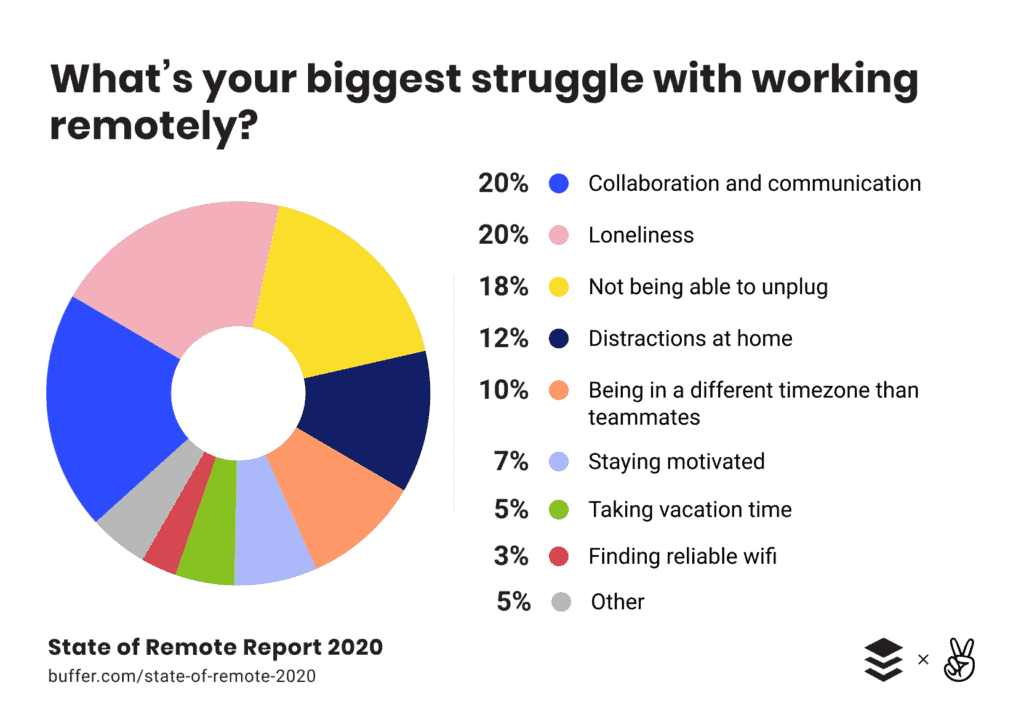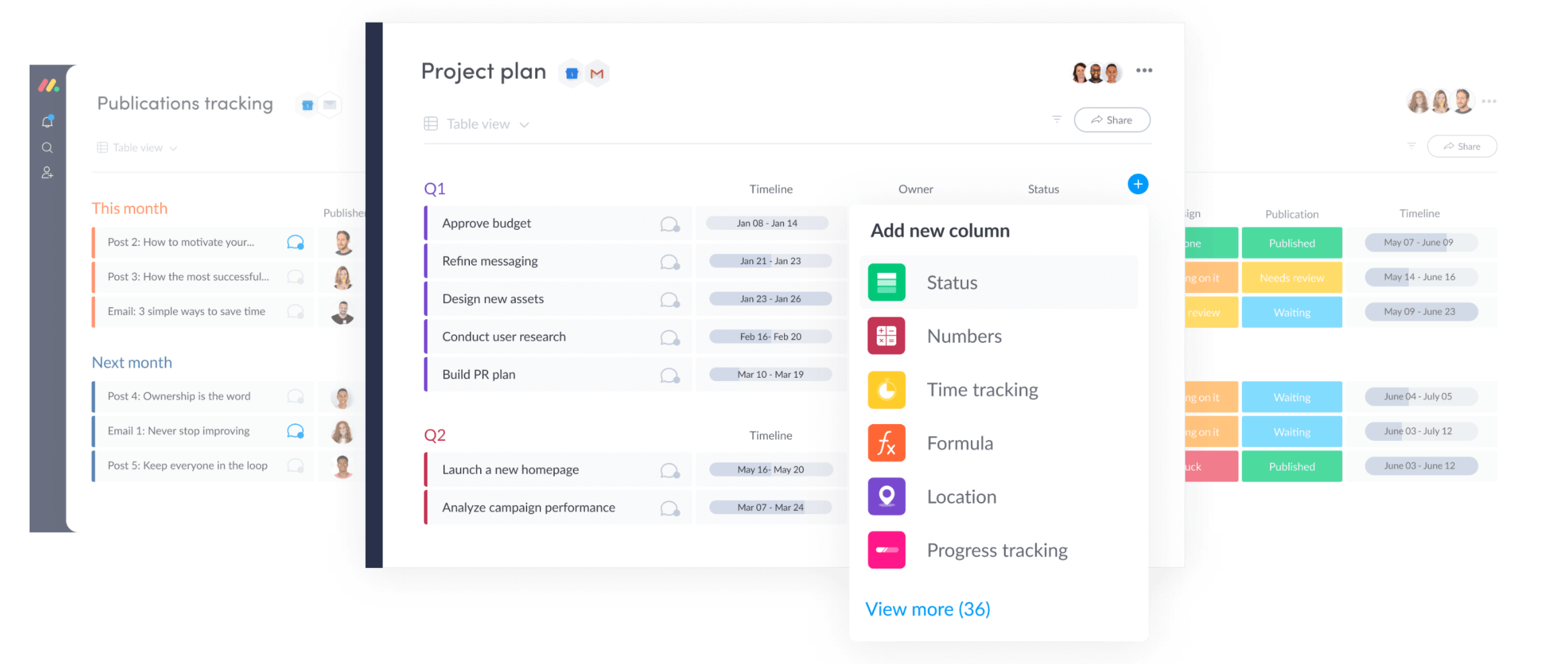Like it or loathe it, we’re embarking on a new era of remote work. The arrival of the COVID-19 pandemic has accelerated a global shift towards working from home (WFH).
While the transition from in-house team management to remote management has posed plenty of challenges for businesses, we can count ourselves fortunate to be living at a time where collaborative tools are advanced enough for company employees to communicate quickly and effectively. If such a disastrous pandemic were to have occurred just five or 10 years ago, the notion of closing the office to operate from home would’ve led to significant issues due to a lack of a widespread technological infrastructure.
Despite there being a greater range of tools available to accommodate a WFH business environment, it still represents a large transition for business structures to get to grips with. Teams still need to adapt to communicating remotely without the convenience of an office meeting room a matter of footsteps away. Luckily, there are plenty of great tips and tricks that have helped managers to keep employees happy and productive away from office environments – let’s take a look at eight of the most significant tips for remote team management:
1. Effective Remote Team Management Hinges on Emotional Support, as well as Business Support
In-house team management requires managers to maintain a level of support and empathy for the challenges that workers are facing, but when it comes to remote management and employees in isolation, it’s vital to keep alert to the signs of stress and fatigue in your team.
Make sure you use more opportunities to make it clear that you support and care for your team. To action this better, it’s important to set up more avenues of communication between yourself and your team. Hold conference calls on a weekly or bi-weekly basis, and try to accommodate more team-building exercises alongside workloads to help remote workers to feel less isolated from fellow team members.

(Image: Lighthouse)
As the chart above shows, most remote workers struggle with loneliness and a lack of collaboration with colleagues. Be sure to consider these factors as you develop your remote team management approach.
2. Encourage Dialogue Between Yourself and Your Team
Two-way dialogue between workers and managers can help to pave the way for greater levels of engagement within your team. According to Gartner research, developing transparency that allows employees to understand your company’s processes and the decisions the business makes is more vital than omitting information that they may not like.
Instilling a healthy level of communication between yourself and your team helps to ensure that they’ll always have access to the information and perspectives that they need in order to work efficiently. They can also be much more willing to share their concerns and negative emotions with their managers which can help to keep workers motivated while outside of the office.
Having a greater level of dialogue in place is particularly important in the age of COVID-19 and the subsequent hardships that the pandemic and recessions will cause employees. Your workers will likely feel more afraid and insecure over their future within your company. Here, it’s important to reassure them where possible and address their concerns.
3. Always Uphold a Level of Trust
Some managers may feel uneasy about allowing their team to work remotely. There’s a long-standing stigma against WFH among some company decision-makers because of the perception that unobserved employees in their homes will lounge around in their pyjamas and watch TV on company time.
However, according to a recent study, remote employees are, on average, more productive than their office-based counterparts – clocking around 1.4 days worth of extra work per month while WFH.
With this in mind, it’s important to have trust in your team members and acknowledge that even though you can’t see them, they are still working hard. While it’s recommendable to establish an easy avenue for dialogue between workers and managers, try to avoid checking in on employees constantly. Show that you have faith in them hitting their deadlines by giving them space. If however, they continually underperform then it’s worth communicating your concerns with them and offering them the chance to explore what changes need to be made to help them build their productivity.
4. Uphold Your Business Values
While this tip is nothing new to forward-thinking modern businesses, it’s worth remembering that most business models are built on creating a pleasant in-house environment for employees. It’s important to ensure that workers know that you’re looking out for them – whether they commute to the office every day or are working 1,000 miles away at home.
Remind remote workers of your code of conduct and encourage them to speak out if they feel that they are being mistreated by colleagues or managers. Due to the difficult times that have been brought on by the pandemic, employee insecurities can lead to misconduct.
It may be worth creating an email signature that displays the avenues that employees can explore to report misconduct and receiving support. This can help to maintain a safe and comfortable environment in which everyone associated with the company can enjoy their working hours.
5. Keep Establishing Team Goals
Working from home can lead to employees losing track of their old office structures, with job descriptions flying out of the window as productivity trackers begin to show where attention is needed. While job roles can become hazy to some remote workers, one of the most effective ways of ensuring that employees are on track is by setting up team goals that are heavily linked to your expectations for your team on a weekly and monthly basis.
Emphasise objectives over processes in order to provide greater levels of clarity for employees and encourage more engagement. Rewards for teams and team members who hit their targets could also be a strong way of establishing a level of camaraderie amongst colleagues who won’t see each other face to face.
6. Use The Right Technology to Encourage Productivity
Screensharing, collaboration platforms and video conferencing applications are now powerful enough to take the difficult world of team management in their collective stride. Difficult tasks that require much care and attention to detail among various employees can be completed with ease through the use of platforms like Monday.com.

Elsewhere, video conferencing apps like Zoom can help teams to conduct meetings with ease, while screen sharing helps groups to tackle complex issues and challenges without any confusion.
7. Avoid Cancelling One-on-Ones at All Costs
Yes, your upcoming one-on-one hasn’t got many talking points, and yes, there’s a difficult client that you need to deal with over the rest of the afternoon, but try to avoid canceling one-on-ones with your team where possible.
Remote employees miss out on a lot of things that happen with your company and you’re the only regular point of contact for many of them. Be sure to always honour your one-on-one time to show that they’re not an afterthought and are a valued member of your team.
While the things you talk about with your team may not seem pressingly relevant to you, to an employee they can see even menial processes as a window into the company that they work for. This can help to build satisfaction and trust in their employers.
8. Always Monitor The Performance of Your Team
Managing your team may be second nature to you, but the era of WFH can lead to difficult transitions for employees. Use productivity platforms to monitor how well each member of your team is dealing with deadlines and check for any emerging irregularities.
Remote work can lead to a drop in focus which may show in a regular series of missed deadlines on productivity trackers, while there’s also a danger of workers burning themselves out by staying online later to complete more tasks.
It’s important as a manager to understand when employees need more motivation and when other employees need to take a break for their own wellbeing.
In this brave new world of remote work, it’s fair to say that team management will change significantly, but as always, if you listen to the signs that your workers are giving off in their work, the will be plenty of repayment in the form of worker productivity.
Business & Finance Articles on Business 2 Community
(35)







